Marking Santa Barbara’s Filipino Legacy
State Street Community Center Has Hosted Family, Food, and Karaoke for Decades
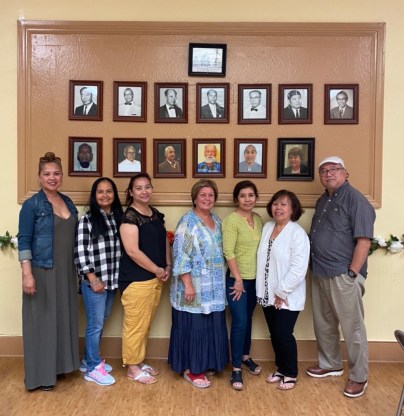
Amid the ever-changing State Street landscape, it’s a treat to recognize the cultural relics that have remained.
On the facade of Zen Yai Thai Cuisine on lower State (425 State St.) also sits the original placard for the Filipino Community Association of Santa Barbara. Passersby might miss it, but many local Filipinos know that the building is double occupancy: the front is the Thai restaurant, but the back has been a celebratory gathering space for local Filipinos since the 1950s.
Bobby Bisquera, a Filipino-American who was born and raised in Santa Barbara, has always known the space as “The Club.”
“I grew up at the club,” he said. “All our family functions were there — dances, weddings, even my own baby shower was there.”
The center was originally founded by a small group of Filipino immigrants, including José Fuentes, Alex Juan Sr., Pete Tenoso Sr., and Philip Galicia. Together they raised money and purchased the building, which was a cigar shop and a small grocery store in its previous lives.
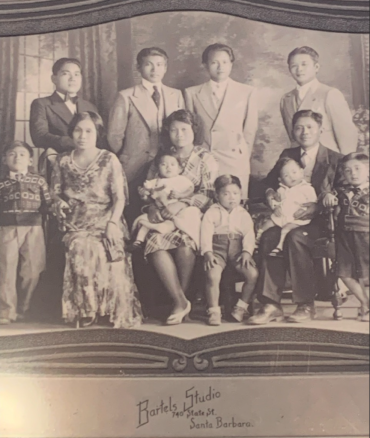
There the group established a home base for area Filipinos to congregate, eat traditional meals, and build community in Santa Barbara.
“As kids we’d just run around and play out back [during events]. I always knew I’d get [to eat] Rice Krispie treats and pancit,” Bisquera said. “To me it was a second home.”
Today, the Filipino Community Association is still owned and run by a board of local Filipinos, some of which have been in leadership there for decades.
Virgie Horstman, originally from the Philippines’ Visayas province, is the current board president and the association’s first female president. She has been in her position for more than 30 years. With her board members, she has helped maintain the space as a “social club,” where people — Filipinos or not — can continue to celebrate holidays and special occasions together with homemade food, music, karaoke, and line dancing.
The parties are ticketed, and are vital fundraising opportunities to pay for building upkeep and the calendar of events. One of their biggest celebrations is Filipino Independence Day, in June each year.
“[The founders] always said we have to own a building. It was a hard task, but their dream became a reality,” Horstman said. “We’re still here and we’re still gonna be here. This is our home.”
Sign up for Indy Today to receive fresh news from Independent.com, in your inbox, every morning.
Santa Barbara’s Filipino history can be traced back over 100 years ago.
According to Bisquera, his grandfather Catalino Bisquera was the first Filipino immigrant to officially settle in town. From the Abra province in the northern Philippines, Catalino came to the U.S. in 1920 as part of the U.S. Army’s Philippine Scouts program. He arrived ready to embrace new opportunities in Santa Barbara, Bisquera said, and he was intent on establishing roots for his family.
Upon arriving, Catalino did odd jobs around town, assisted a local judge, and eventually worked at the historic Arlington Hotel. He even fibbed about his age in order to attend and graduate Santa Barbara High School in 1925, as a supposed 20-year-old who was actually 30.
Eventually he began bringing more of his family from the Philippines to join him.
“He was following the American Dream,” Bisquera said. “He sent for my grandmother and they got married here in 1926… [then] he was able to purchase a house on Chino Street, which my family still owns.”
The local family legacy has only grown from there.
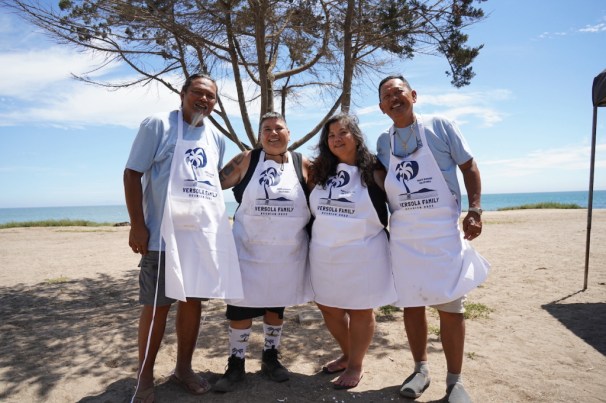
Kathy Versola is Bisquera’s second cousin and was also born and raised in Santa Barbara. Her father Jimmy, whose mother was Catalino’s sister, was a talented chef who worked at restaurants around town including Joe’s Café and Harry’s.
Since adolescence, Kathy, her siblings, and other Versolas followed suit, working as hostesses, busboys, waiters, dishwashers, and cooks at various local eateries. At one point, as many as 15 Versolas were on the payroll at the old El Cielito in La Arcada, she said.
“My dad and my great aunt ran the kitchen, my mother was the hostess, my brother was a busboy, two of my uncles were bartenders, we had dishwashers,” Versola said.
In August, dozens of Versola’s and Bisquera’s family members gathered at Goleta Beach Park for a family reunion, the first one in decades. Over beautifully-cooked pancit, tri-tip, and sweet and sticky biko, four generations of kin reconnected and reminisced on old times and loved ones now passed.
They chatted about growing up Filipino in Santa Barbara in the ’50s, ’60s, and ’70s, when the only other Filipinos they’d see in school or around town were usually their own family. In those times, most people “didn’t even know what ‘Filipino’ was,” one cousin remarked.
Half Filipino-half Mexican, Bisquera grew up more in touch with his Mexican roots, in part because his grandfather Catalino was “adamant about [the family] speaking English and being American,” he said.
In adulthood, however, Bisquera has a renewed appreciation for his Filipino heritage. Upon unearthing family documents, photos, and records — all meticulously preserved over the years — he’s naturally become a sort of family historian for his Filipino relatives.
One recurring element in this shared history? “The Club.”
“Looking back,” Bisquera said, “it had a lot of influence on me.”
Support the Santa Barbara Independent through a long-term or a single contribution.

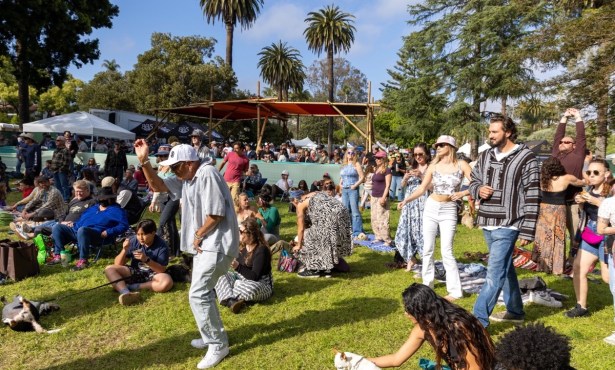
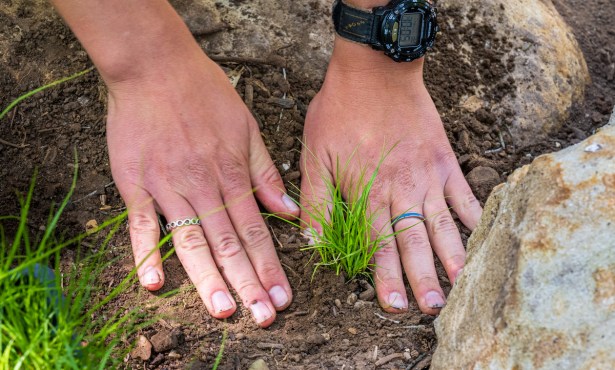

You must be logged in to post a comment.